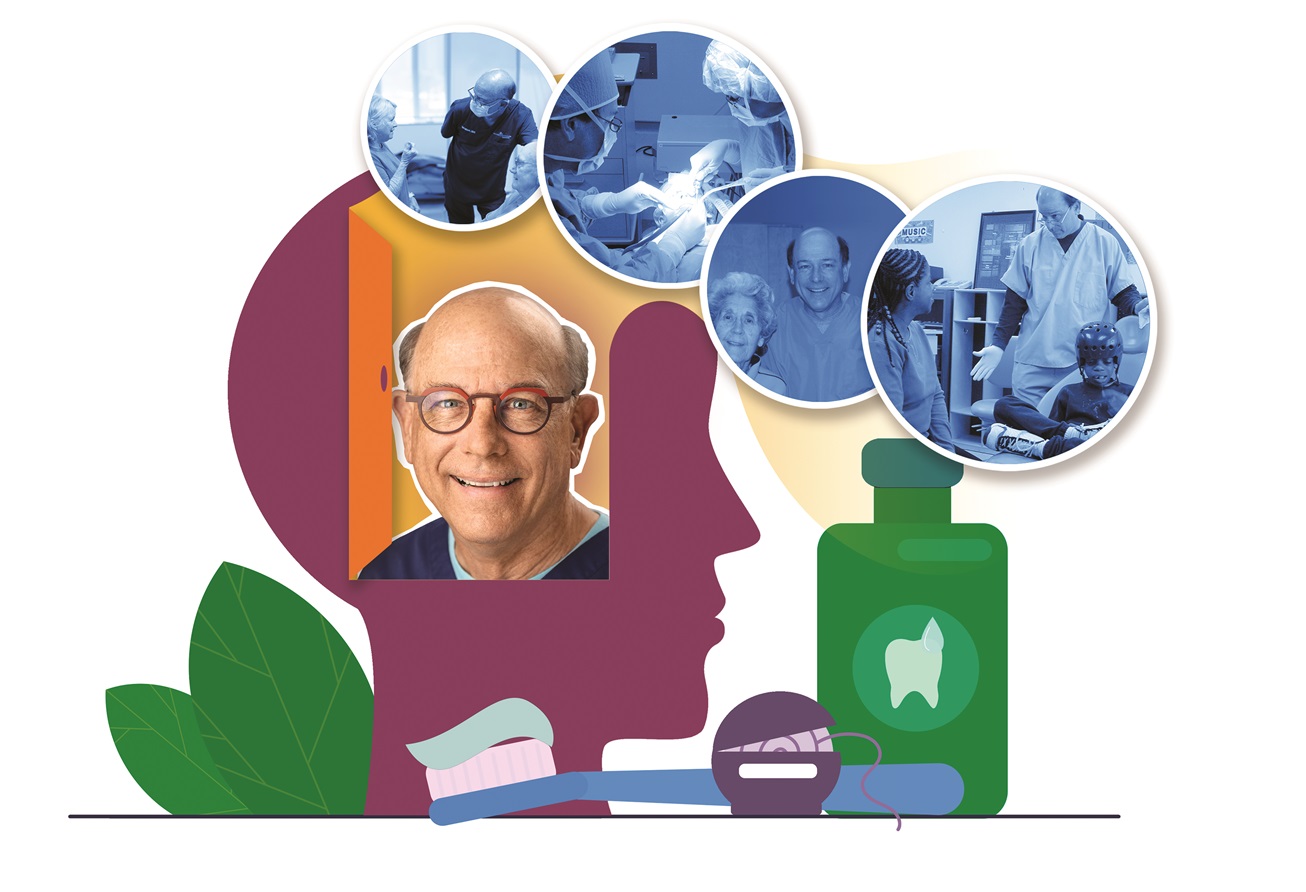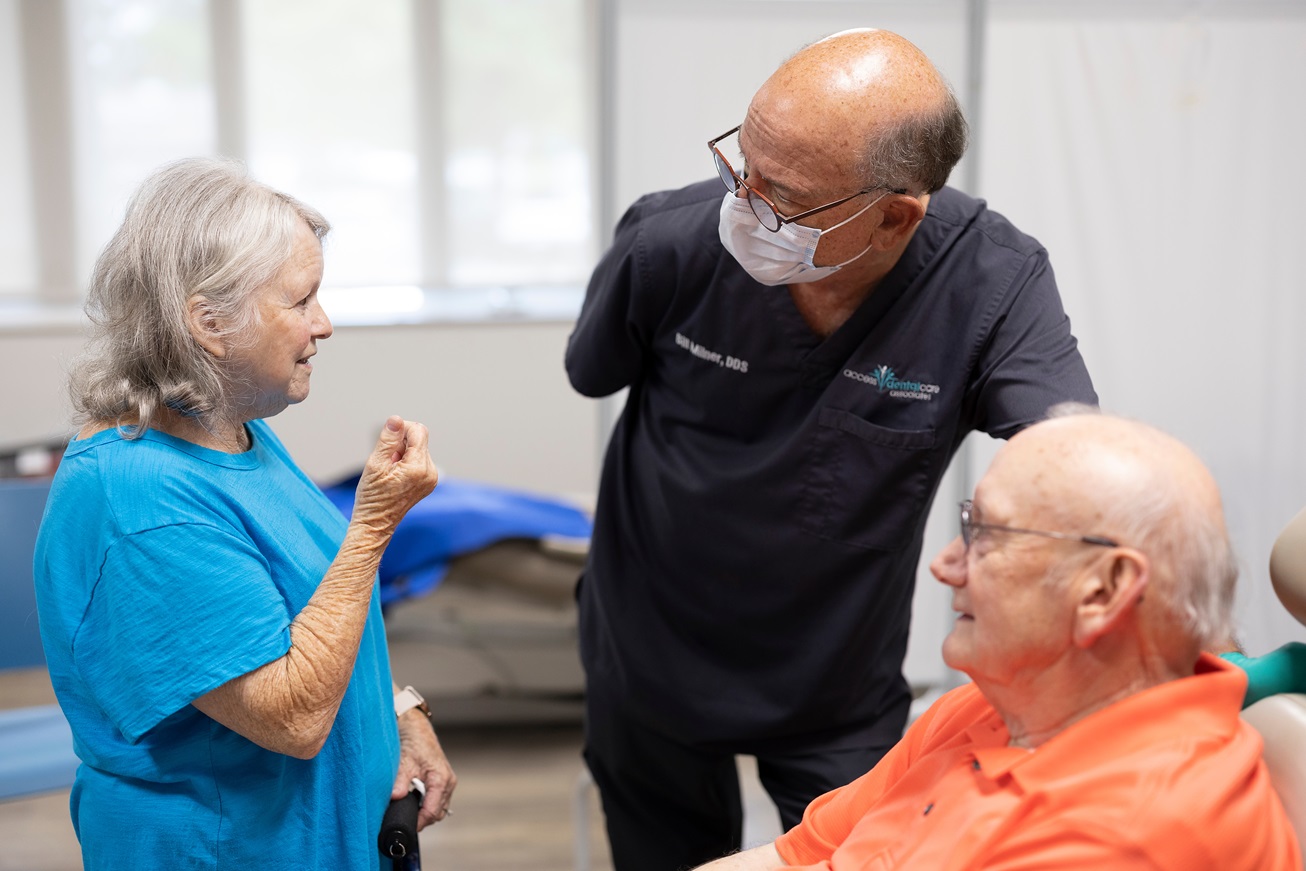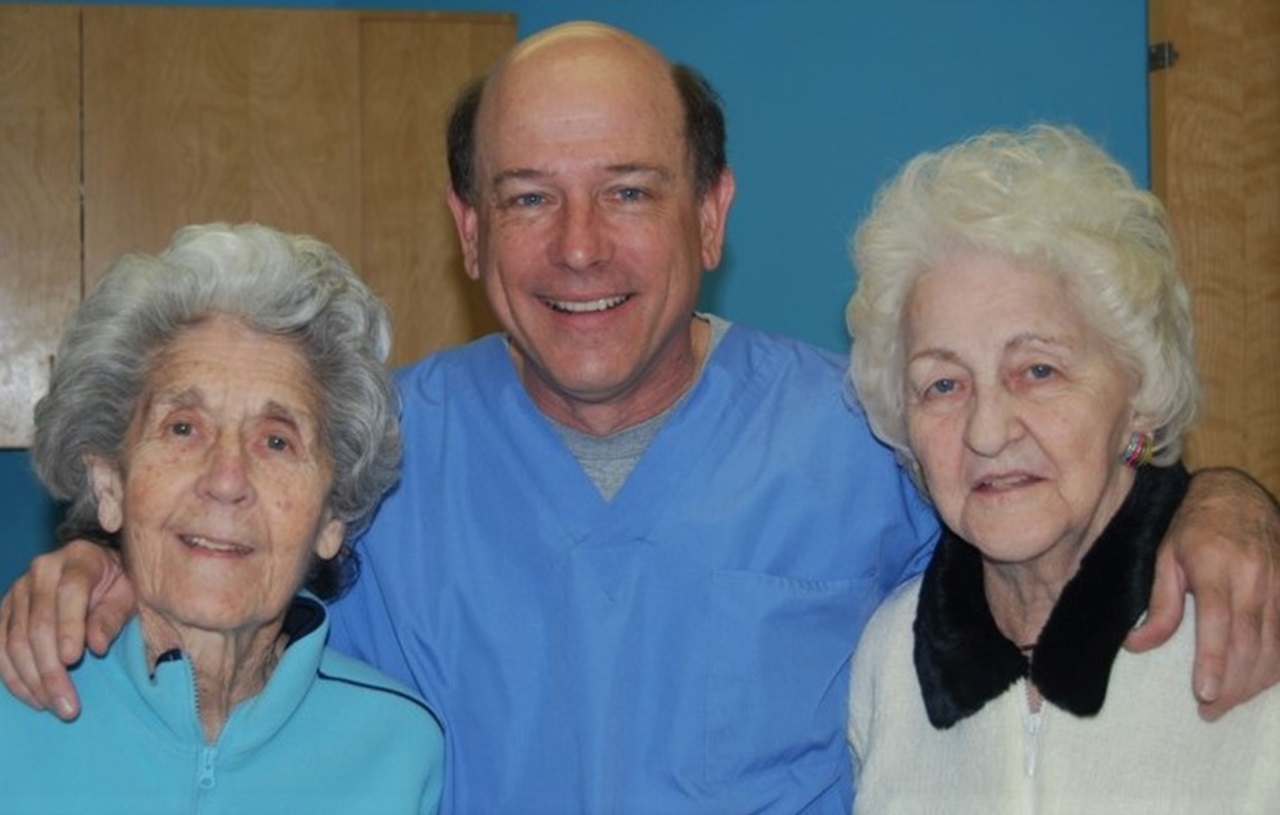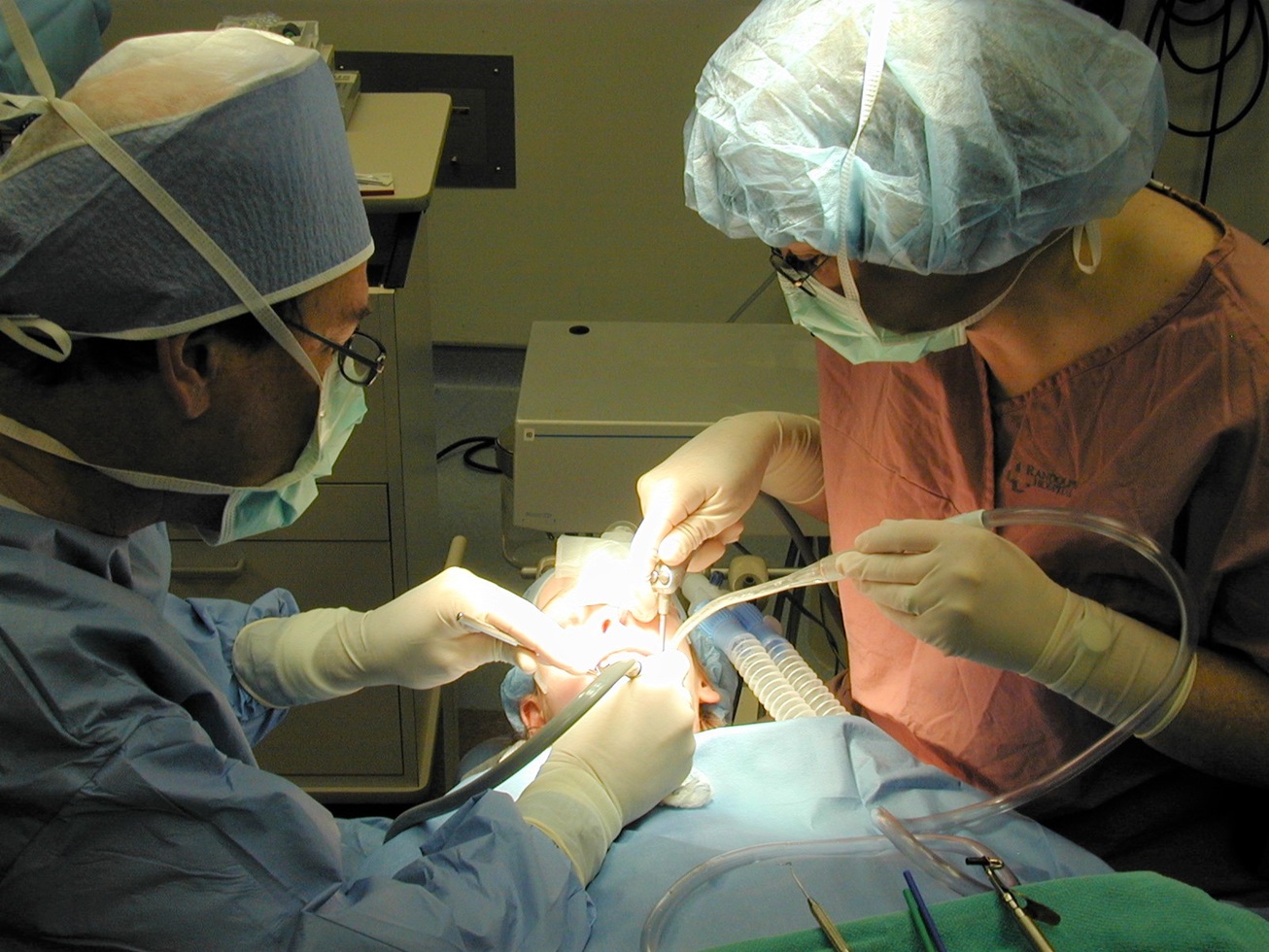Bill Milner, D.D.S., is recipient of 2023 ADA Humanitarian Award
Collaboration: Marko Vujicic, Ph.D., ADA chief economist and vice president of the Health Policy Institute, right, poses with Sen. Ben Cardin, D-Md., chairman of the Subcommittee on Health Care, on March 29 in Washington, D.C.

That means that Dr. Milner can relate personally to the stories his patients — almost exclusively the elder care population and patients with special health needs — and their caregivers share with him as they praise him for opening doors that were previously closed for them.
“Dentistry has had difficulties caring for this population because we require patients to come into a brick-and-mortar building, get themselves into a dental chair, hold their mouths open and heads still, plus, remain quiet while in the waiting room and in the chair,” Dr. Milner said. “Anything outside of these parameters means that [some practitioners are] helpless to provide services. Having treated a wide variety of patients with syndromes, medical, physical and mental conditions has helped our staff provide a comforting home for families.”
The goal of providing those homes to his underserved patients is part of why Dr. Milner is the recipient of the ADA’s 2023 Humanitarian Award.
The award is bestowed by the Board of Trustees annually to dentists who have distinguished themselves by outstanding, unselfish leadership through the expenditure of extraordinary time and professional skills — all to improve the oral health of underserved populations.
The award includes $10,000 given to the dental charity or project of the recipient’s choice. The 2023 Humanitarian Award presentation will take place at ADA SmileCon, which is October 5-7 at the Orange County Convention Center in Orlando, Florida.
“On behalf of the Board of Trustees, I was proud to call and congratulate Dr. Milner on being the recipient of one of the ADA’s highest honors,” said ADA President George R. Shepley, D.D.S. “He has spent his 40-plus years in organized dentistry working toward oral health equity, providing care to those most in need. Patients with disabilities, those in nursing homes, and even patients with infectious diseases like HIV/AIDS are receiving care that might not always be available otherwise. Dr. Milner and his staff's dedication is epitomized by the fact they are being proactive about meeting the needs of seniors and those with special health needs, while at the same time inspiring early-career dentists and dental students in North Carolina to follow his lead.”

Founding model
“We at Access Dental Care are humbled and excited to represent dentistry’s new emerging field of comprehensive, quality care for a variety of community special care patients,” Dr. Milner said, sharing the award with his nonprofit Access Dental Care. “Special care has come a long way through the years, and the light bulb has finally clicked on with the emergence of a rapidly aging population and deinstitutionalization of those with intellectual and developmental disabilities.”
The mission, said Dr. Milner, “has always been to serve folks who have difficulty getting services.”
Dr. Milner received his dental degree from the Baylor College of Dentistry in 1975 and his master’s in public health administration from the University of North Carolina School of Public Health in 1984.
He spent the first 25 years of his career providing clinical care to children and working with North Carolina communities to create dental clinical programs through the North Carolina Department of Human Services' Oral Health Section and the Randolph County Health Department.
Dr. Milner was satisfied and proud of his work, but over the years he saw that children weren’t the only ones having to hurdle obstacles in accessing dental care.
“In 1979 I toured a variety of nursing home models in England,” he said. “There were even private practitioners going to patients’ homes doing dentures. Seeing this outreach care made me realize that this service could be done here.”
He continued: “I was lucky. While caring for children, I was given time to start a North Carolina Dental Society Committee on Aging. Our meetings began to focus on how to build a service model for care of the elderly and those with intellectual or developmental disabilities. The Society took a leading role in supporting this effort.”
At the time, Dr. Milner remembered something he had heard when he was a student.
“Back in dental school, I wanted to be a ‘barefoot dentist,’ patterned after the ‘barefoot doctors’ they have in China,” he said. “‘Barefoot doctors’ are those who would walk from village to village in China, taking medical services to those in outlying areas. The idea is that you go out and open doors. Half of my brain is dentistry and half of it is public health. It’s all about opening doors and serving folks who need services where they need them.”
In the 1990s. Dr. Milner worked with Michael Helgeson, D.D.S., who started Apple Tree Dental in Minnesota, to create a program that would work in North Carolina. They started with a 1997 pilot headed by Ford Grant, D.M.D., at Carolinas HealthCare in Charlotte.
In 2000, he created Access Dental Care, which provides onsite, comprehensive dental care for those in nursing homes, group home day centers,
Access Dental Care now serves 150 facilities in almost half of North Carolina’s counties, as well as runs a fixed special care clinic in Asheboro. ADC dentists also provide operating room care at University Hospital in Charlotte, Randolph Hospital in Asheboro, Cone Hospital in Greensboro, WakeMed in Raleigh and ECU Health Medical Center in Greenville.

“Most of our patients have had great dental care all their lives,” Dr. Milner said. “And then it happens: a stroke, slow-debilitating dementia or any number of conditions that prevent them from coming into the office. Families caring for these individuals work hard to provide support at home, but maintaining oral health is sometimes forgotten. Dealing with those who have an intellectual or developmental disability is a whole other issue. These folks have been dealing with lack of access to oral health services all their lives. Our patients are very nonroutine, forcing us to deal with many different issues before we get to the mouth.”
Dr. Milner credited his colleagues at Access Dental Care for their commitment and enthusiasm.
“It has been a wild ride,” he said. “We made the commitment early on to provide comprehensive, quality care — the same care that anyone gets in the community at large. But providing this care is quite different than working in the traditional dental office. Taking care to the patient requires up to an hour’s travel one-way, moving two operatories of equipment into a facility, seeing 15-18 patients a day, loading up the equipment at the end of the day and then returning back to our home base. We joke that our corporate exercise program is moving equipment every day.”
Patients’ oral conditions exacerbate aspiration pneumonia, heart conditions, diabetic issues and general septic infection, he said.
And that’s not all.
“Costly trips back and forth to the hospital, calling in a medical specialist, and patient pain and family frustration are all by-products of oral health neglect,” he said.
Seeing what his patients and their families go through on a daily basis makes his problems look very small, Dr. Milner said.
“I’ve been doing dentistry for 47 years now, and I can’t wait to get to a facility, teach aspiring special care providers or advocate for policy change related to this population,” he said. “It has been a driving force of our organization to make changes in this care system, knowing that few want to provide this type of care, and few have the skills or temperament to provide this care. It’s a specialty whose time has come.”
Dr. Milner has served at the national level as president of the American Society for Geriatric Dentistry and Special Care Advocates in Dentistry, plus acted as a representative for the ADA on The Joint Commission, a nonprofit that accredits more than 22,000 U.S. health care organizations and programs.
Dr. Milner has been president of the Randolph County Dental Society and is an active member of the North Carolina Dental Society ‘s Council on Prevention and Oral Health.

Dr. Milner’s colleagues are hailing his continuing legacy.
“Dr. Milner is unique in that he has a passion and for 30 years has been devoted to providing ‘love to the unloved,’” wrote Gary Oyster, D.D.S., who formally submitted the nomination for Dr. Milner. Dr. Oyster serves the 16th District, which represents North Carolina, South Carolina and Virginia, on the ADA Board of Trustees.
“It takes a special person to reach out and care for them,” Dr. Oyster said.
“His legacy is that he will be remembered as one who never gave up even though he had to constantly educate the Department of Health and Human Services and other government agencies to allow him to do what he felt was a calling to do,” Dr. Oyster said. “Later on it was realized that what he was doing was needed and praised by many colleagues. He has recruited young dentists to continue his life's work using Access Dental Care as a model. Dr. Milner is one of those people you will never forget once you meet him. He is a great human being who has a big heart.”
M. Alec Parker, D.M.D., executive director of the North Carolina Dental Society, said, “I have known and admired Dr. Milner’s clinical skills and devotion to his patients for over 30 years. I cannot think of anyone else more deserving of [the Humanitarian Award].”
Dr. Milner is active in developing the next generation of dentists dedicated to delivering elder care and treatment of those with special health needs.
“Dr. Milner is acutely aware of the need to develop the pipeline of clinicians to care of the growing aging population. He is personally developing solutions to fill this need, educating dental students and residents,” said Jane A. Weintraub, D.D.S., the R. Gary Rozier and Chester W. Douglass Distinguished Professor of Dental Public Health and former dean of the University of North Carolina at Chapel Hill Adams School of Dentistry.
Amanda Stroud, D.M.D., past president of the North Carolina Dental Society Foundation, said, “He has served as a trailblazer for students who want to follow his same path of outreach and care, as well as for any other program that desires assistance with setting up a mobile program.”
Dr. Stroud continued: “As the worlds of public health and dentistry continue to work hand-in-hand with discussion, planning, and implementation of programs to reduce barriers to care, increase access to dental services, and fortify providers who are able to serve the needs of those who are underserved, Dr. Bill Milner is looked to as an example for all. The care he provides is more than dental care — it is also compassion and dedication to the service of each patient with whom he works.”
Ultimately, Dr. Milner said he is guided by his mantra:
“Always opening doors — never take ‘no’ for an answer.”



